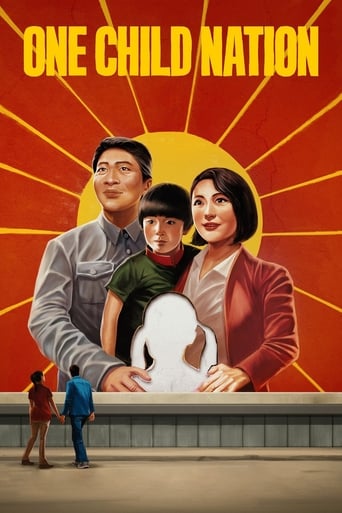
29 Mar 2019

One Child Nation
Through interviews with both victims and instigators, Nanfu Wang, a first-time mother, breaks open decades of silence on a vast, unprecedented social experiment that shaped — and destroyed — countless lives in China.
In the late 1940's two young, idealistic American scientists made the extraordinary decision to settle down and work in a remote district of China. They were drawn by the promise as they saw it, of profound social revolution. Joan Hinton was a physicist, one of the few women to have worked on the Manhattan Project to develop the atomic bomb. Sid Engst was from Cornell University in up state New York, and a specialist in agriculture. This is a fascinating account of the lives these two Americans built for themselves in the very midst of China's most troubled times.

29 Mar 2019

Through interviews with both victims and instigators, Nanfu Wang, a first-time mother, breaks open decades of silence on a vast, unprecedented social experiment that shaped — and destroyed — countless lives in China.
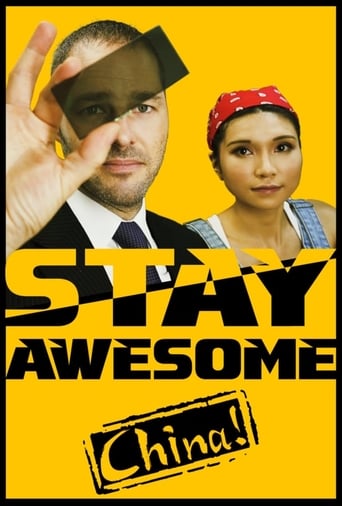
12 Jan 2019

To really understand China, you have to get to know its people! Winston "SerpentZA" Sterzel travels across China’s first tier cities – Beijing, Shanghai, Guangzhou and Shenzhen – meeting the cities’ most fascinating people, including a racy nude photographer, a mosquito breeding scientist and a DIY maker challenging gender and tech stereotypes.
Diane Li, a graduate student in communication at the University of Stanford, was permitted for five weeks to visit the People’s Republic of China with her husband, a professor of Chinese law at Stanford, and a team of medical experts. Together they investigated and documented the training and work of China’s peasant paramedicals, the ‘barefoot doctors’. One of the first films about China made by an American of Chinese descent, Li’s documentary provides a rare glimpse of village life in the PRC at a time when Cold War tensions were easing between the United States and China.
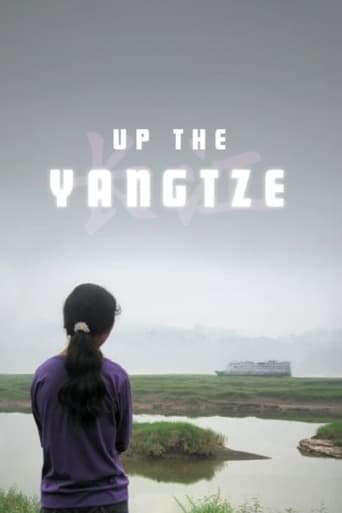
30 Sep 2007

A luxury cruise boat motors up the Yangtze - navigating the mythic waterway known in China simply as "The River." The Yangtze is about to be transformed by the biggest hydroelectric dam in history. At the river's edge - a young woman says goodbye to her family as the floodwaters rise towards their small homestead. The Three Gorges Dam - contested symbol of the Chinese economic miracle - provides the epic backdrop for Up the Yangtze, a dramatic feature documentary on life inside modern China.
01 Jan 2002
A documentary about Peking in the dawn of the new Millenium. Contains interviews with Jia Zhangke and dj Gaohu
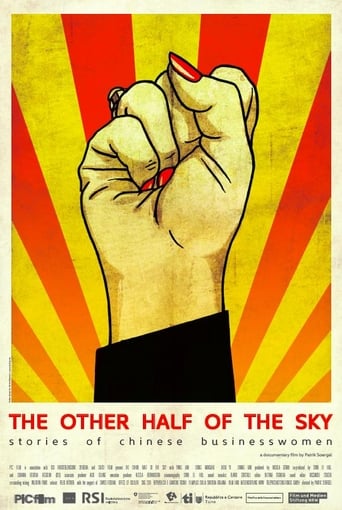
22 Sep 2016

They are four of the most successful businesswomen in China: Belonging to a generation who experienced the austerity of China's cultural revolution, followed by the subsequent economic boom, they have worked their way to the very top in a patriarchal society. Today, Yang Lan is the owner of one of the leading private media companies. Dong Mingzhu is a tenacious female CEO, heading up the world's largest manufacturer of air conditioning systems. Zhang Lan is a tycoon in the luxury restaurant business. Zhou Yi is a top manager working for a big american IT company. How were these careers built? What are the social and economic contexts in which they operate? And what do these women think about the political, social and cultural state of their country?
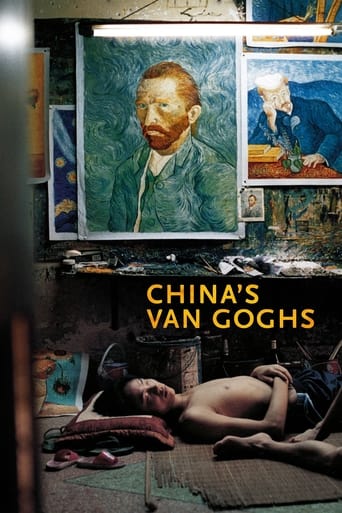
15 Dec 2016

An intimate portrait of a peasant-turned oil painter transitioning from making copies of iconic Western paintings to creating his own authentic works of art.
01 Oct 2017
Game developer Elliott Marc Jones, his girlfriend Stephenie and musician Matthew Sayers travel to three major Chinese cities to conquer the country's most dangerous activities and extreme sports.
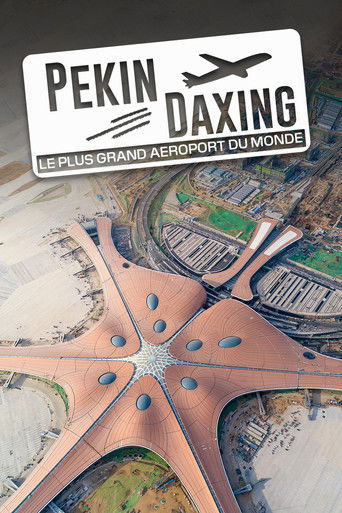
29 May 2022

September 2019. China inaugurates the largest airport terminal in the world, which covers 700,000 m2, the equivalent of 98 football pitches. Built in 5 years, it embodies the jewel of Chinese modernity but also of French know-how. Go behind the scenes of a pharaonic construction site.
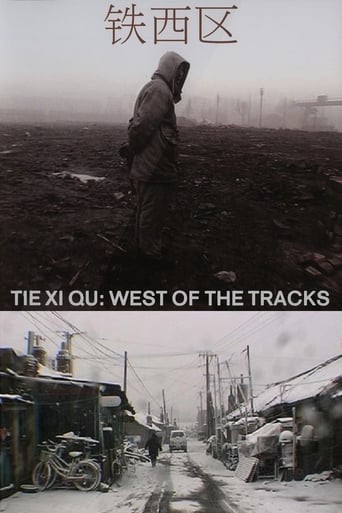
07 Sep 2003

A detailed look at the gradual decline of Shenyang’s industrial Tiexi district, an area that was once a vibrant example of China’s socialist economy. But industry is changing, and the factories of Tiexi are closing. Director Wang Bing introduces us to some of the workers affected by the closures, and to their families.
Two-part documentary about the Tibetan refugee community in India. Feingold interviews Tibetan philosophers and former political prisoners. Part One (60 mins.) "Body, Speech, and Mind: Conversations with Tibetan Philosophers". Part Two (30 mins.) "Resisting the Chinese Occupation: Personal Accounts of Tibetans".
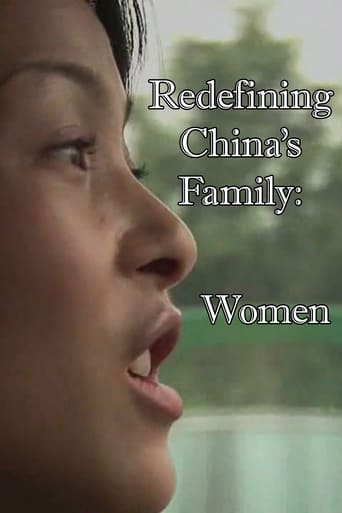
19 Jul 2008

10 May 2007 - China's staggering economic growth has overshadowed a more subtle shift in Chinese society. In domestic life, many women are now ignore the advice of their mothers and grandmothers, turning instead to counselling hotlines and, increasingly, divorce.
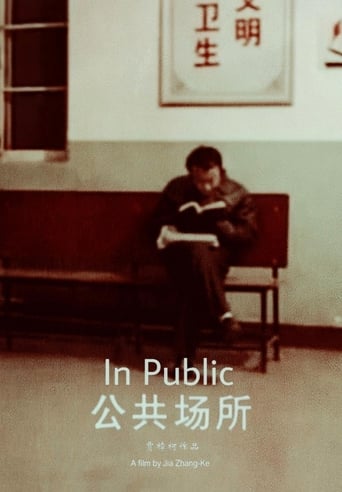
28 Apr 2001

A fragmentary landscape for a little train station in a suburban area and a bus stop in a mining town. A lonely soldier in his heavy coat, a tired old man, a bubbly young lady, a punk, a woman waiting in the street... From all those different people in these unfamiliar places, we can feel the exhaustion of every life.
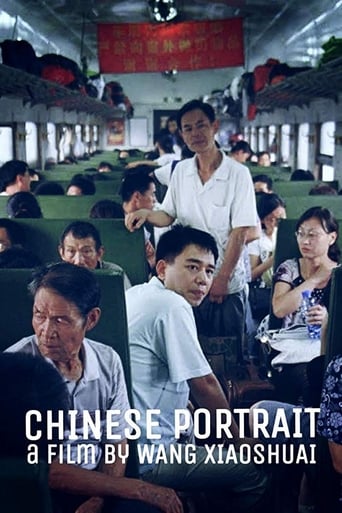
06 Oct 2018

Shot over the course of ten years on both film and video, the film consists of a series of carefully composed tableaux of people and environments. Pedestrians shuffle across a bustling Beijing street, steelworkers linger outside a deserted factory, tourists laugh and scamper across a crowded beach, worshippers kneel to pray in a remote village. With a painterly eye for composition, Wang captures China as he sees it, calling to a temporary halt a land in a constant state of change.
This short documentary follows a group of students from Hamilton, Ontario, on a rare three-week “tour” of China in 1972. These teenagers were the first North American students to visit China since 1949, when Mao Tse Tung’s Communists overthrew the Nationalist Government of Chiang Kai-shek.

23 Sep 2016

The films spans two decades as the story unfolds in a series of flashbacks that begin when Qiyue and Ansheng were just thirteen. The two became inseparable until they met a boy who ended up tearing their lives apart.

21 Apr 1990

A woman married to the brutal and infertile owner of a dye mill in rural China conceives a boy with her husband's nephew but is forced to raise her son as her husband's heir without revealing his parentage in this circular tragedy. Filmed in glowing technicolour, this tale of romantic and familial love in the face of unbreakable tradition is more universal than its setting.
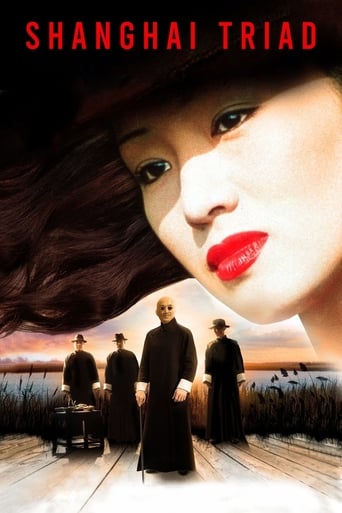
14 Sep 1995

Shanghai, China, 1930. When young Shuisheng arrives from the countryside, his uncle Liushu puts him at the service of Bijou, the mistress of Laoda, supreme boss of the Tang Triad, constantly threatened by his enemies, both those he knows and those lurking in the shadows.
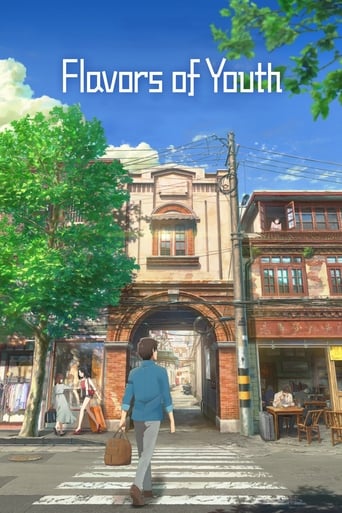
04 Aug 2018

The rigorous city life of China, while bustling and unforgiving, contains the everlasting memories of days past. Three stories told in three different cities, follow the loss of youth and the daunting realization of adulthood. Though reality may seem ever changing, unchangeable are the short-lived moments of one's childhood days. A plentiful bowl of noodles, the beauty of family and the trials of first love endure the inevitable flow of time, as three different characters explore the strength of bonds and the warmth of cherished memories. Within the disorder of the present world, witness these quaint stories recognize the comfort of the past, and attempt to revive the neglected flavors of youth.
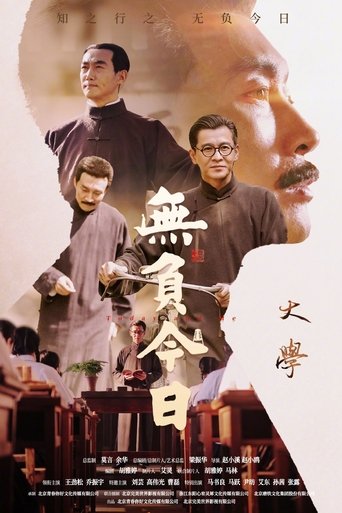
10 Sep 2022

No overview found